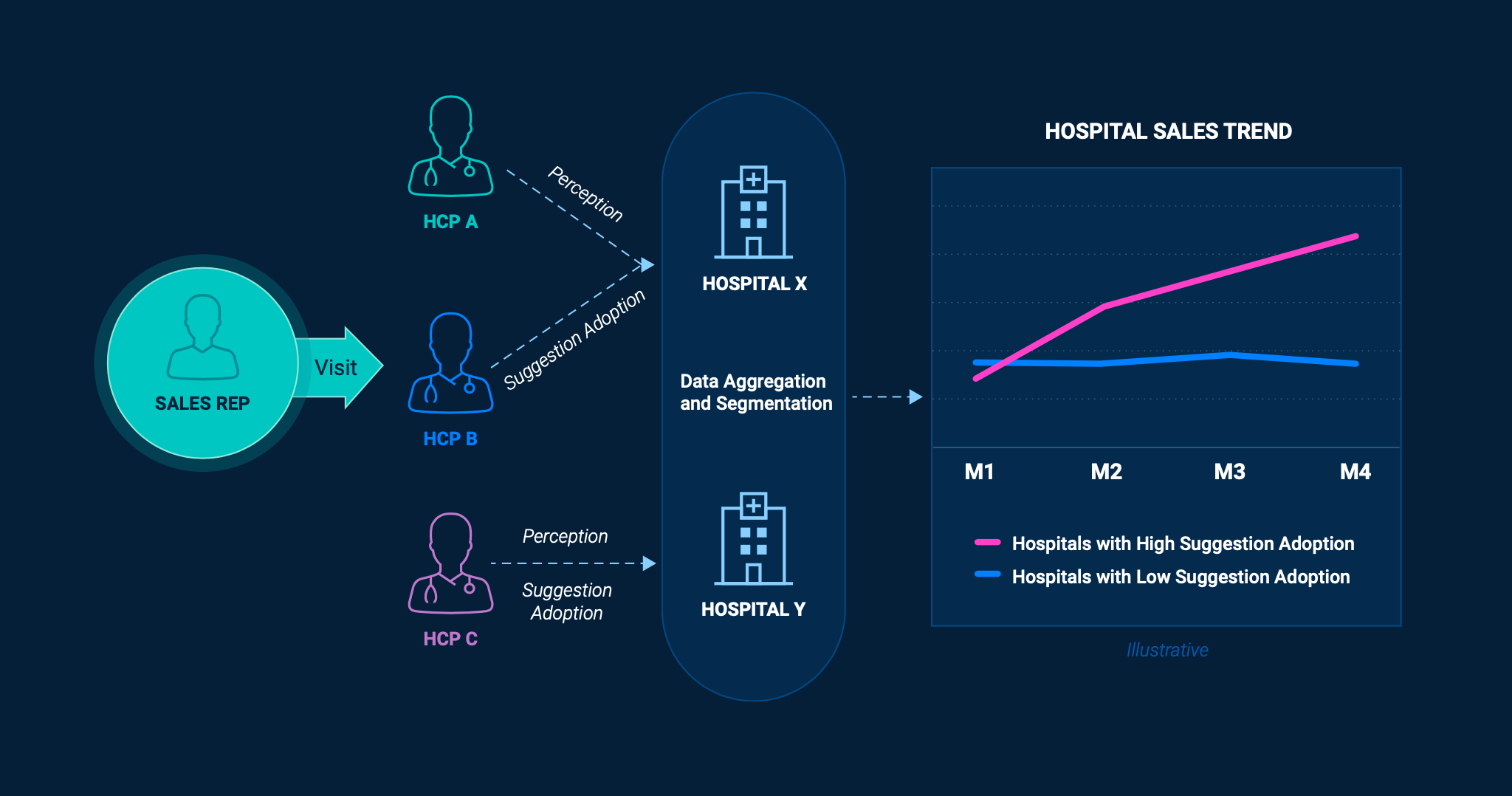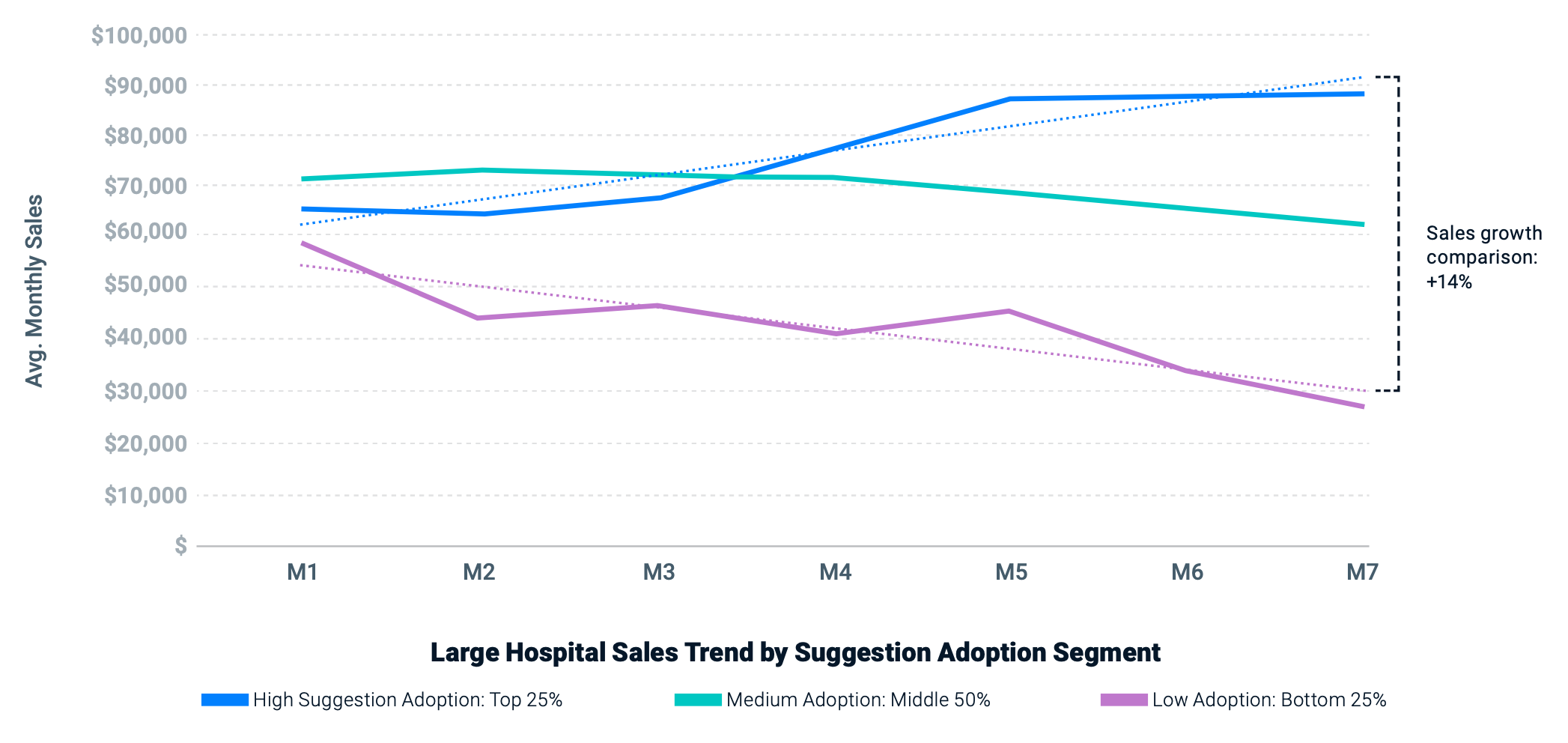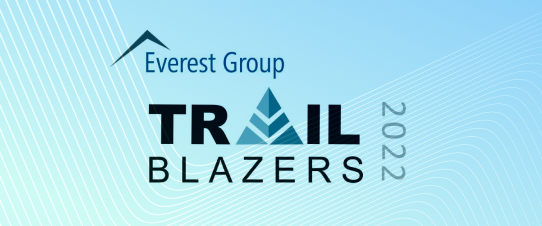Challenge
Helping oncologists understand the implications of a new treatment option and identify which patients may benefit most is a complex task with longstanding impact on prescriber adoption. When a potential blockbuster oncology drug was approved for a new indication in China, a top global pharma company partnered with Aktana to deliver on both fronts. Together, they created an AI-based HCP segmentation and perception platform to optimize targeting and improve collaboration between the marketing and sales teams. Using Suggestions, they were also able to personalize omnichannel engagement for each physician, steadily improving sales performance over time.
Together, they created an AI-based HCP segmentation and perception platform to optimize targeting and improve collaboration between the marketing and sales teams.
Approach
Prompted by daily in-workflow Suggestions, more than 500 reps worked to collect data from HCPs about their patient profiles, treatment experiences, and any questions that could drive or impede adoption of the new line of therapy. Insights captured during visits and distilled in collaboration with Sales and Marketing helped the brand build an AI-based HCP perception database to optimize HCP targeting and segmentation.
Aggregated insights were also used to build a more granular target physician profile and evolve brand strategy to suit, while individual perception data was used to tailor messaging for more personalized engagement. The ongoing collection of field insights created a mechanism for continuous strategy improvement, which could be communicated directly to the field using Suggestions. The result is a closed loop that both generates data and improves its quality over time.
More analysis and machine learning models are being added to understand new opportunities in the data that may help improve cancer care and patient outcomes even further.
Analysis Methodology
This analysis uses historical HCPhospital affiliations to aggregate rep data to the hospital level. Comparing like-sized facilities helped control for outside factors like sales potential and geographical bias, which can be especially pronounced for oncology drugs. These impact results reflect trends from large hospitals, which were responsible for 75% of monthly sales in this study.

Impact
In-workflow Suggestions provided clear direction to the field as brand strategy evolved, resulting in higher average monthly sales and stronger sales growth.
2X
Average monthly sales double
After just 7 months, average monthly sales in hospitals detailed by reps with high Suggestion adoption were approximately double that of hospitals with low Suggestion adoption.
+14%
Sales growth accelerates
Compared to hospitals in the bottom 25 percent of suggestion adoption, the rate of sales growth was 14 percent greater in high-adoption facilities.
Sales growth is faster in large hospitals
with high suggestion adoption

2X
Average monthly sales
+14%
Sales growth



